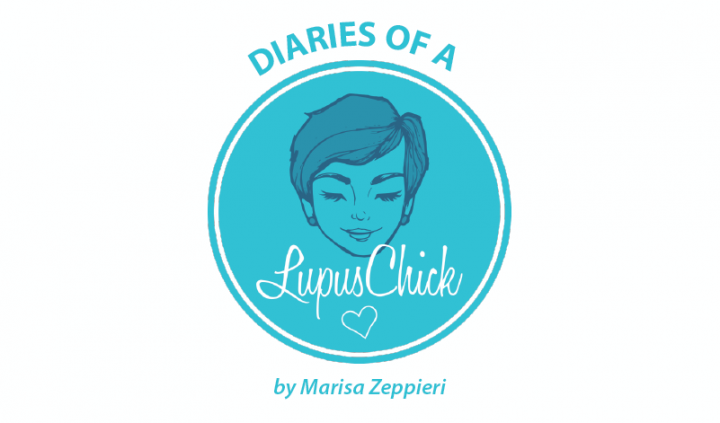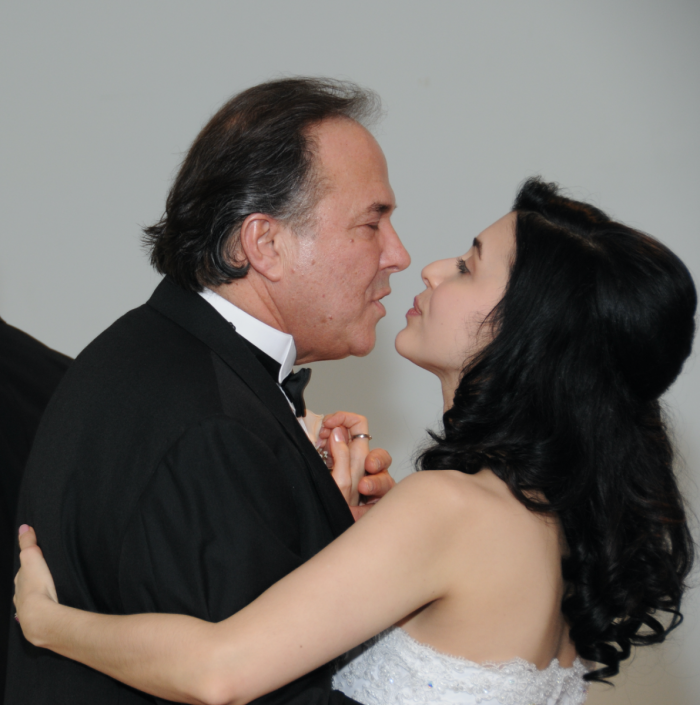Lupus, Grief, and Losing a Loved One

Dealing with a chronic illness each day can be frustrating and overwhelming, so how do we factor in grief and the grieving process when someone close to us passes away? How do we actively mourn the passing of a loved one without causing a flare-up?
To be honest, I don’t have a simple answer; this is a road I am currently traveling, but I’ve learned a few things along the way. About six weeks ago, I lost my father after a long battle with cancer. I thought I was prepared; I had plenty of time to mentally gear myself up for the inevitable. But when it happened, it literally felt like someone ripped the rug out from under me, causing me to fall to the floor and knock the wind out of my lungs.
The first week after he passed, I felt like my body and mind were on autopilot. I hardly remember those seven days. Somehow, I geared myself up and kept telling myself that I only needed to get through the funeral. In addition to the emotions that occur while grieving someone, I felt an entirely separate onslaught of emotions related to lupus.
Every time I cried for my father — the deep, from-your-gut, ugly-face cry in which you can barely catch your breath — I would pay for it physically. Fevers came on almost immediately. Next were the mouth sores, and within a few days, the fatigue and aches kicked in.
Though I am grateful for so many incredible things that have happened to me in my life, there are still aspects that I feel have been taken away by this disease. My desire to cry and express feelings of sorrow is one example. In these weeks since his passing, I feel like my tears have had to be bottled up inside for fear of a major flare — and honestly, this makes me angry.
So, on top of grieving, July brought anger, a feeling of loneliness, and this reality of the finality of death. About two weeks after his death, I did go into a flare. Add an infection to it, and soon enough I wound up in the hospital.
There was so much going on, so many emotions, that I did something completely out of character. I literally shut off the world. This may not seem like much, but my heart is to always help, always do, and always keep busy. My mom likes to call it “burning the candle at both ends.”
But as I lay in my hospital room staring at the ceiling, feeling physically horrible from the flare and medication side-effects, emotionally drained from grieving, and utterly exhausted from everything hitting at once, I had a few thoughts:
What health I do have is not worth ruining.
The world isn’t going to stop if I take some time off from everything.
It isn’t selfish to take time to care for my physical and emotional health.
I am going to be patient with myself and allow as much time as possible to grieve for my dad.
I promised to do better — for myself. So, I shut the world out during the month of July. It wasn’t easy. Work, friends, responsibilities, social media — there were plenty of things trying to get my attention. But I did something that is usually impossible for me: I said, “No.”
I’ve enjoyed this reprieve, this time of healing my physical and emotional body, reflecting on my father and how I was blessed to have incredible moments with him. I’ve napped, taken bubble baths, painted my nails, and even binge-watched some Netflix shows — all without feelings of guilt raining down on me.
While grief has aspects that will look similar for many of us, we all still go through the grieving process in a way that is unique to us, to our relationship with that person.
Grieving is a season of life that can put things into a new perspective.
One thing I meditated on these past few weeks is how easygoing my dad was. He was someone who really enjoyed simple pleasures and never worried about the what-ifs. Personally, I’ve wasted too many minutes of my life worrying about things that might happen (and never did). I saw these traits about him while he lived, but didn’t realize how important they were until after he passed.
I look forward to the day I see him again and can share all the ways he positively impacted my life and the changes I’ve made because of him.
In the meantime, I’m still trying to figure out this grieving while chronically ill process and keeping my eyes open for more incredible lessons this life season is teaching me.
***









Susan Pope
I really enjoyed this article, because I have lupus, and now have to take care of myself. Also, my dad was the same way with never wasting a moment of worry, but was always planting little trees, listening to the birds, watching the squirrels, enjoying his great grand daughters, etc. right up until he became sick.
Susan
Chris
My dearest friend;
I am so sorry for your loss.
When I lost my dad I felt like someone ripped out my heart. My dad was a wonderful man. So his loss was not easy to get over. It takes a long time to be able to remember the good times and I still have days when I miss him so much. There is no GOOD time to lose a loved one. Many memories would trigger that sense of loss. Then there are those things that happen an blind side you out of the blue...the loss all over again. The only thing that helped me was knowing that he would not have wanted me to be miserable and hurting. Life was a joy for him an in that memory I live my life in joyful tribute.
I will keep you in my heart and prayers. Be patient with yourself and love yourself thru this.
Wishing you happier days,
Chris
Paula
I am responding to the article late. However, no matter how long ago this may have happened to you, it still feels the same Debilitating! Hello, I lost my father in 2019 and my life has changed not for the better. While working at a school I was bullied, harassed and treated like dirt. Again, all the while grieving for my loving, kind, funny and caring dad. I try to move on but something is hindering from doing so. I try to keep busy to not think to hard especially since I am dealing with my new found diagnosis of brain concerns. Yep, was diagnosed with neurological issues. I can deal with this however, it’s insensitive people who make this incredibly unbearable to handle. I will try to find a support group.
penelope
I have been in various forms of Somatic/Trauma informed/Contemplative psychotherapy for my entire adult life. I was diagnosed with SLE at 15. One of the most significant things I have learned is how to work with my emotions, how to self-regulate and also how to co-regulate inside of a secure attachment relationship. I'm saying al this in case some of it is useful to you, there are some brilliant therapists in the world and I hope you will benefit like I have
Njeri Allen
Hello :) I have lupus and I know someone who lost a parent who had it recently. How does she cope? I haven’t seen any articles or support groups for people with family members with lupus. I think my parents would benefit from it as well.